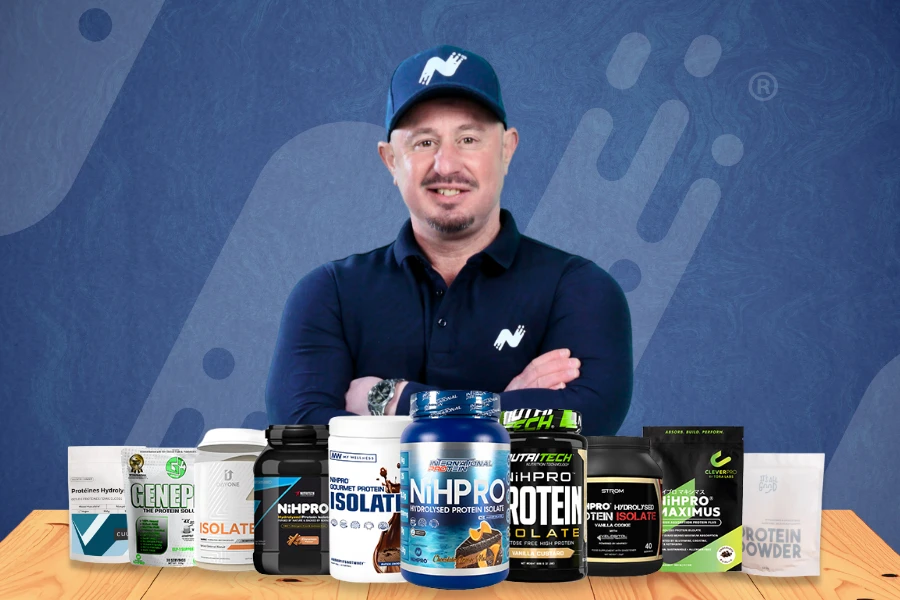Protein is often hailed as one of the key nutrients when building muscle, but its benefits extend far beyond that. A growing body of research has illuminated its significant role in weight management and satiety—two critical aspects of maintaining a healthy lifestyle. Understanding how protein works in the body can empower us to make informed dietary decisions that support long-term health goals, including weight control.
The Science Behind Protein and Satiety
Satiety refers to the feeling of fullness after eating, and it plays a critical role in controlling calorie intake. Among the three macronutrients—proteins, fats, and carbohydrates—protein has been consistently shown to be the most satiating. This means that meals rich in protein make us feel fuller for longer periods, helping to reduce overall food intake and discourage overeating.
Protein’s high satiety effect is linked to several mechanisms. First, protein takes longer to digest compared to fats and carbohydrates. This slow digestion keeps the stomach fuller for extended periods, reducing the likelihood of snacking between meals. Additionally, protein-rich foods can influence the release of hunger-related hormones like ghrelin. Ghrelin, often referred to as the “hunger hormone,” decreases when protein intake is sufficient, helping to keep hunger in check.
Moreover, protein enhances the release of peptide YY (PYY) and glucagon-like peptide-1 (GLP-1), two hormones that promote satiety. These hormones slow down the rate at which food empties from the stomach, prolonging the feeling of fullness. Studies indicate that increasing protein intake can reduce calorie intake at subsequent meals by up to 20%, a powerful tool for anyone seeking to lose or maintain weight.
Thermic Effect of Protein
Another reason protein supports weight management is due to its thermogenic properties. The thermic effect of food (TEF) refers to the number of calories burned during the digestion and absorption of food. Protein has the highest thermic effect of all the macronutrients, with approximately 20-30% of its calories burned during digestion, compared to just 5-10% for carbohydrates and 0-3% for fats.
By consuming more protein, we can naturally increase the calories our bodies burn, even when we’re at rest. This thermic effect of protein doesn’t just support weight loss but also helps maintain a healthy metabolism, making it easier to keep off the weight once it’s lost.
Protein and Muscle Preservation
While many associate protein with muscle growth, it’s equally vital for preserving muscle during weight loss. One of the biggest challenges in losing weight is the tendency for both fat and muscle to be lost in the process. However, maintaining muscle mass is crucial, as muscle burns more calories than fat, even at rest. By incorporating sufficient protein into the diet, we can preserve muscle tissue during periods of calorie restriction.
Studies show that when individuals increase their protein intake while following a calorie-reduced diet, they not only lose more fat but also retain more lean muscle mass. This preservation of muscle mass has long-term benefits, as it helps maintain metabolic rate, making it easier to avoid weight regain.
Choosing the Right Protein Sources
When it comes to weight management, not all protein sources are created equal. While high-quality proteins such as lean meats, fish, eggs, and dairy products are excellent options, plant-based proteins like legumes, nuts, seeds, and grains are also beneficial for those following vegetarian or vegan diets. Balancing these protein sources ensures a wide array of essential amino acids—the building blocks of proteins—which are necessary for optimal body function.
Supplementing protein intake with products like NiHPRO™ Protein Isolate by NiHTEK® offers a unique advantage. NiHPRO™ is crafted using non-GMO plant sources and processed with NiHTEK’s proprietary Molecular Protein Infusion (MPi™) technology. This advanced technique ensures that the protein is nearly identical to dairy in taste and protein content, making it an excellent option for those seeking high-quality, allergen-free protein. Not only does it support muscle preservation and recovery, but it also contributes to satiety and weight management, without the digestive challenges associated with lactose.
Leucine and Resistance Training
Leucine’s effect on muscle growth is most potent when combined with resistance training. Weightlifting or bodyweight exercises create microtears in muscle fibers, which the body then repairs through MPS, aided by amino acids. Consuming leucine-rich protein post-workout helps the body rebuild these fibers more efficiently, leading to muscle hypertrophy over time.
For athletes and fitness enthusiasts, timing leucine intake around training sessions can enhance recovery and promote muscle repair. While consuming leucine alone can trigger MPS, studies show that combining leucine with other essential amino acids, particularly in the form of complete proteins, results in a more sustained anabolic response.
Protein Timing: The Power of Distribution
In addition to consuming the right types of protein, the timing of protein intake is critical for maximizing its benefits. Research suggests that spreading protein intake evenly across meals is more effective for muscle maintenance and weight management than consuming large amounts of protein in a single sitting. Aiming for 25-30 grams of protein per meal ensures a steady supply of amino acids to the muscles throughout the day.
Consuming protein-rich snacks between meals can further aid in curbing hunger and reducing the temptation to indulge in calorie-dense, unhealthy foods. Protein bars, shakes, and snacks fortified with high-quality protein isolates like NiHPRO™ can offer a convenient solution for staying full and satisfied without compromising on nutrition.
Long-Term Weight Management and Protein
One of the biggest challenges with weight management is the high likelihood of weight regain after a period of weight loss. Protein can play a pivotal role in preventing this regain. A diet higher in protein can reduce the drop in metabolic rate that often accompanies weight loss. The preservation of muscle mass also plays a key role in preventing weight regain, as a higher proportion of lean mass supports a faster metabolism.
Additionally, the long-term adoption of a protein-rich diet is associated with healthier eating patterns. Many people find it easier to stick to a diet that includes satisfying, protein-rich foods, as they experience fewer cravings and are less likely to overeat.
Conclusion:
Incorporating more protein into the diet is a powerful strategy for both weight management and enhancing feelings of satiety. By selecting high-quality protein sources, timing intake effectively, and ensuring a balanced distribution throughout the day, we can optimize the body’s response to protein, making it easier to lose or maintain weight. At NiHTEK®, we are proud to support individuals on their health journeys with our innovative protein solutions like NiHPRO™, which offer the benefits of high-protein nutrition without the drawbacks of common allergens or digestive discomforts.





